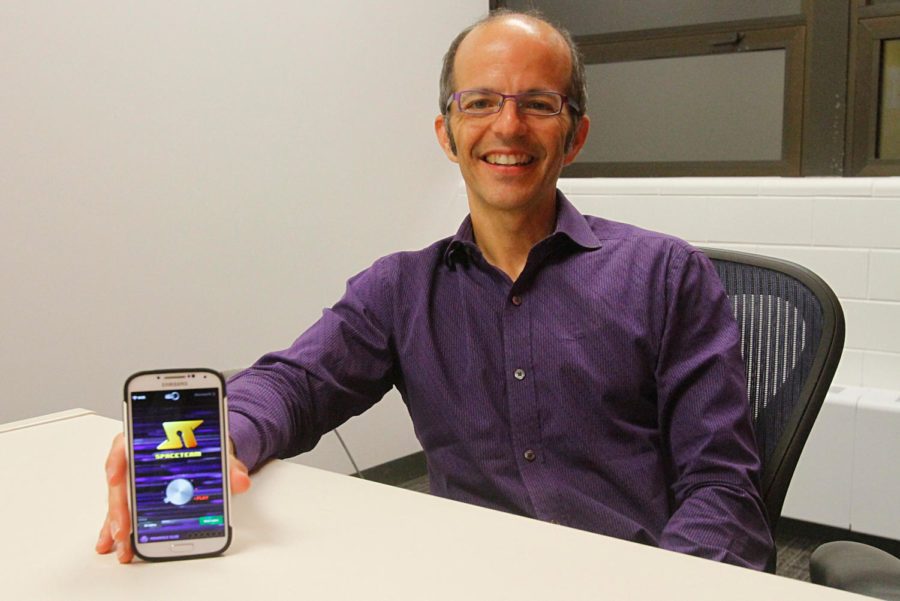ISU professor uses social media app to engage students
Tiffany Herring/Iowa State Daily
Reynol Junco, associate professor of education, has been researching young adults’ interactions with social media for years. He encourages the use of social media in his Student Affairs and Counseling class.
August 28, 2014
Reynol Junco encourages students to take out their phones during his class.
The first day of his Student Affairs and Counseling class, he told his students to take out their smart phones to play an icebreaker game.
“Students had their phones out and were engaged and that was encouraging,” Junco said.
Students played a game called “SpaceTeam” to get to know the members of their groups that they’d be working with for the rest of the semester.
Valerie Hall, graduate student in education, said the icebreaker game app was a unique way to learn about how each member of her team worked.
The icebreaker team app involves every player taking on a different role in flying a spaceship. Hall said the game was realistic because she and her team had to listen and communicate with one another simultaneously.
“It was a different approach to team building,” Hall said. “And I appreciated it.”
Junco, associate professor of education, has been researching young adults’ interactions with social media for years.
Junco used his research on social media and the classroom to fuel his new book, “Engaging Students through Social Media.”
“I’m doing work on how young people interact with Facebook and Twitter and things like that — how it affects learning in a classroom and learning outside the classroom,” Junco said. “[I looked at] Twitter in the classroom and how that helps students get better grades in all of their classes and how it helps them be more engaged.”
One element of his research focused on how different activities on Facebook are related to grades or class engagement. A survey of about 2,000 students found that more than half admitted to texting in class and almost 30 percent admitted to using Facebook during class.
“The issue isn’t whether or not students use Facebook,” Junco said. “The question is how people are using Facebook.”
The study showed certain activities on Facebook were more related to campus engagement. Students who used Facebook to play games or post pictures were less likely to be involved in campus. Students who created, responded or commented to events were more engaged in the campus, Junco found.
“I’m interested in how young people build relationships by using Facebook,” Junco said. “I’m also interested in identity development for people to build a solid and stable sense of self.”
Hall said she was a bit surprised when Junco told the class to take out their phones for class. That’s a command that most professors don’t give, she said.
Junco has heard thanks from other professors about the study’s findings.
“I’ve heard from other professors things like, ‘Now we have the data for what we’ve always suspected,’” Junco said. “Students think it’s great. Professors never say this kind of stuff.”







